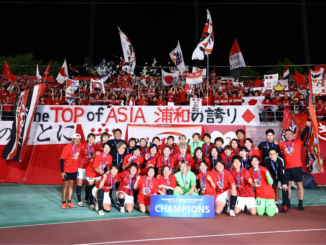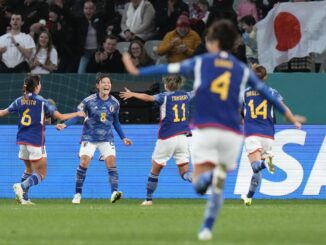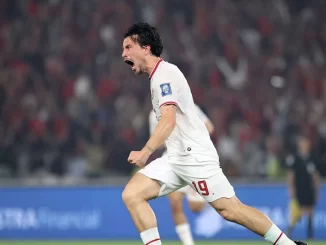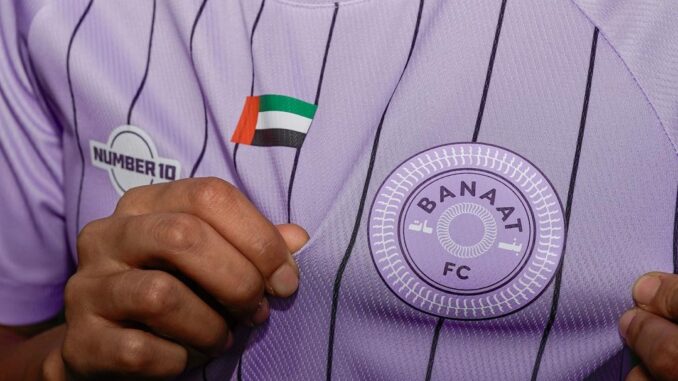
In the United Arab Emirates, August 28 is Emirati Women’s Day, a chance to celebrate the increasingly significant role women are playing in Emirati society.
For Budreya Faisal, a pioneering business and football marketing executive from Dubai, the day now also carries extra significance.
It’s the day she launched her latest passion project, one she hopes will be looked upon in years to come as a defining moment in helping drive cultural change in the conservative country.
It’s the day she launched a football club. And not just any football club, but a women’s football club, in a country where women’s football remains very much on the fringes, largely unaccepted by general society.
Her inspiration came from where we spend so much of our modern lives – on social media.
We’ve all had the moment where we look at a football club, usually the one we support, don’t like what we see and think: “I could do better than that!”
For most of us, the idea of owning a football club remains in the realms of pure fantasy, with an epic Football Manager save the closest most will venture.
But not Faisal.
A business and football marketing executive from Dubai, she was travelling back from Egypt, where she was working on a new campaign for Egyptian giants Al Ahly, and was scrolling through social media, as you do, and spotted something that caught her eye, but for all the wrong reasons.
“On my way back, a social media post popped up from a Saudi club that looked very, very outdated,” she explained, “not like something you would post in 2024, I’m talking about format, not so much the content, although that was also somewhat questionable.
“But it just could have looked so much better, considering the amount of money that’s in football here, and it got me frustrated. And I was so used to being frustrated with how things are done and then doing something about it, but it was always in the service industry, because I’m a consultant in marketing and football strategy.
“This time, I thought, instead of getting upset, like I always do, and offering a service, let me try and do something about it, and create something that would become the benchmark for Arab football representation… in a very humble, humble way.
She continued: “So I came back to Dubai, went to the office the next day, and saw something on women’s football here (in UAE) popped up and I noticed how no club, none of the women’s clubs, had an Arabic name, and that immediately stood out, how there was a lack of representation in our culture and in our football here.
“(So) that’s when I decided that I was going to remedy my frustration over a certain club’s social media post by creating a women’s football club that actually offers that representation and supports an industry that desperately needed attention, and that was Banaat FC.
“And ‘Banaat’ was the first word that came to mind. It’s a very simple word; it means ‘girls’ in Arabic. And that was that.”
Within a month, Banaat FC was launched, bringing fresh energy to the Emirates fledgling women’s football scene.
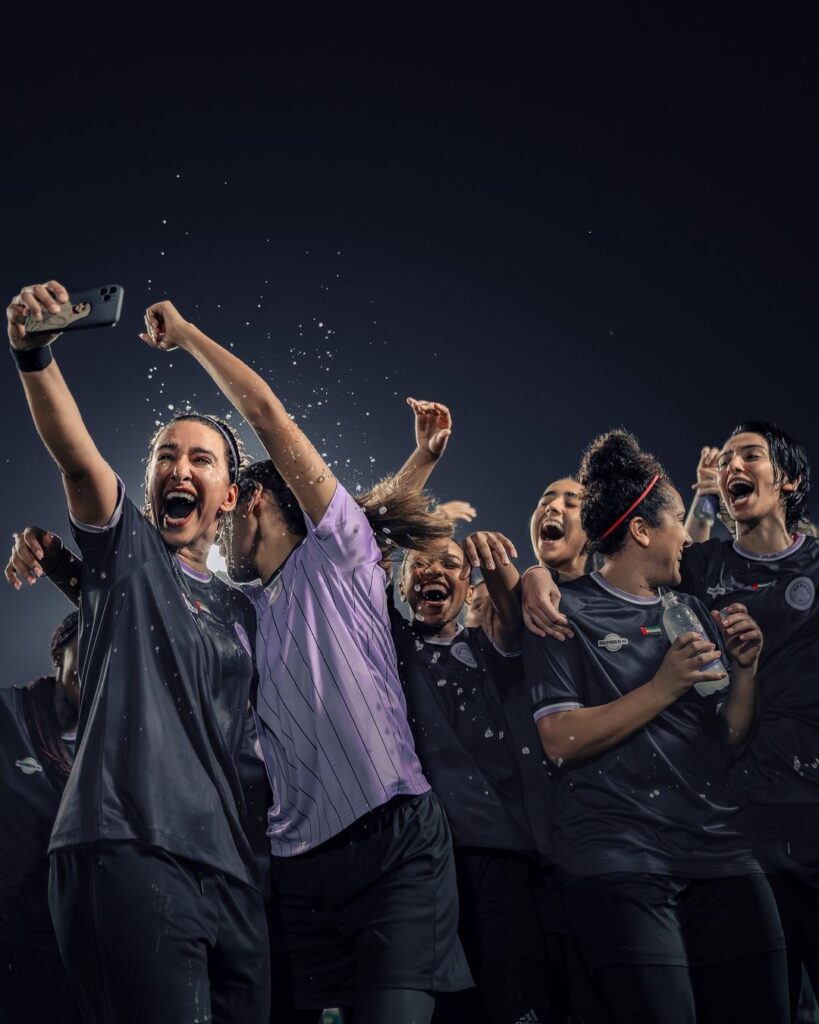
But Faisal didn’t want Banaat to be just any club, she wanted to push boundaries and challenge the status quo in conservative UAE, and that means probably breaking a few eggs along the way.
Their club motto says it all: Rise. Represent. Reclaim.
“I didn’t just create this club to add another club to the list that exists around here that people don’t really know much about,” she said.
“I’m trying to do something here to better the industry and to do that, I needed to change the perception of women’s football here.
“I’m talking from a cultural viewpoint. Emirati households, in general, are a lot more traditional than people would think, even more so than Saudi (Arabia), and the general, wider opinion is that this is a male sport and should remain a male sport exclusively.”
The support she has received from the football community, however, has been overwhelming. But while one UAE Pro League club offered up its facilities for the team to train on, for Faisal it only highlighted a gaping hole when it comes to women’s football in the Emirates, something she is determined to change.
“When we moved out of the Federation for our training, we got support from Al Nasr Football Club, and they sponsored our training pitch for the rest of the season,” she said.
“Which was amazing considering all the clubs here don’t have women’s teams. I’m talking about the Pro League clubs. None of them have women’s football teams, which is quite sad, but I know that’s going to change very soon. It has to, which is why we’re doing what we’re doing again.
“We’re here to kind of light a fire under everybody, to get moving (and) do something, because the world’s interested. The brands are interested. So at least get on board for those reasons, for commercial reasons, if anything.”
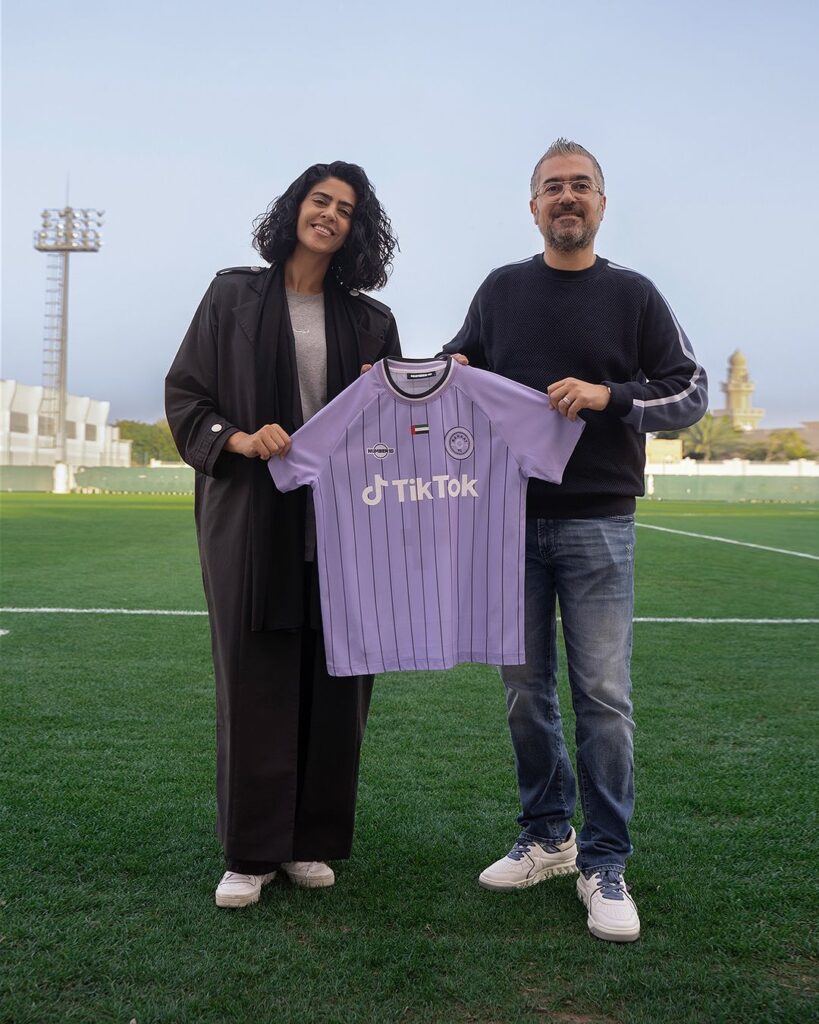
Banaat are living proof of that commercial interest, with TikTok joining the club as it’s primary sponsor, the first time any UAE women’s team has had a front of shirt sponsor.
It’s all part of Faisal’s bigger vision towards full-time professionalism, which includes properly playing the players and developing dedicated facilities.
“I want them to have the best of everything,” Faisal said, “but we don’t have a developed industry or league yet for them to be able to ever think of themselves, I think, as a professional footballers making it and making the money… not yet, hopefully it’s something I’m planning to change very soon.”
Speaking with Faisal it’s clear she is impatient for change. As the rest of the world turbocharges its investment into women’s football, she doesn’t want the UAE, or the wider Gulf region, to get left behind.
It’s why the advent of the AFC Women’s Champions League, and the AFC’s confirmation of $1.3 million in prize money for the champions, is so significant. It’s already the target for Banaat as they head into their second season.
“Oh you know that’s the plan for us now,” she exclaimed when asked about the importance of that tournament.
“It’s on paper already, that’s something we’re working towards. It’s going to take a lot more for us to get there as a club, as an organisation, because we still need to learn about what what does it take to actually play in the Champions League, (but) we’re building towards it.”
The next Emirati Women’s Day is still over two months away, but when it comes it’ll be a double celebration for Faisal and her team. Having already achieved so much, she has just one simple message for what the future holds for Banaat FC.
“Watch this space!”
Listen to Episode 224 of The Asian Game Podcast as we go In Conversation With… Budreya Faisal


